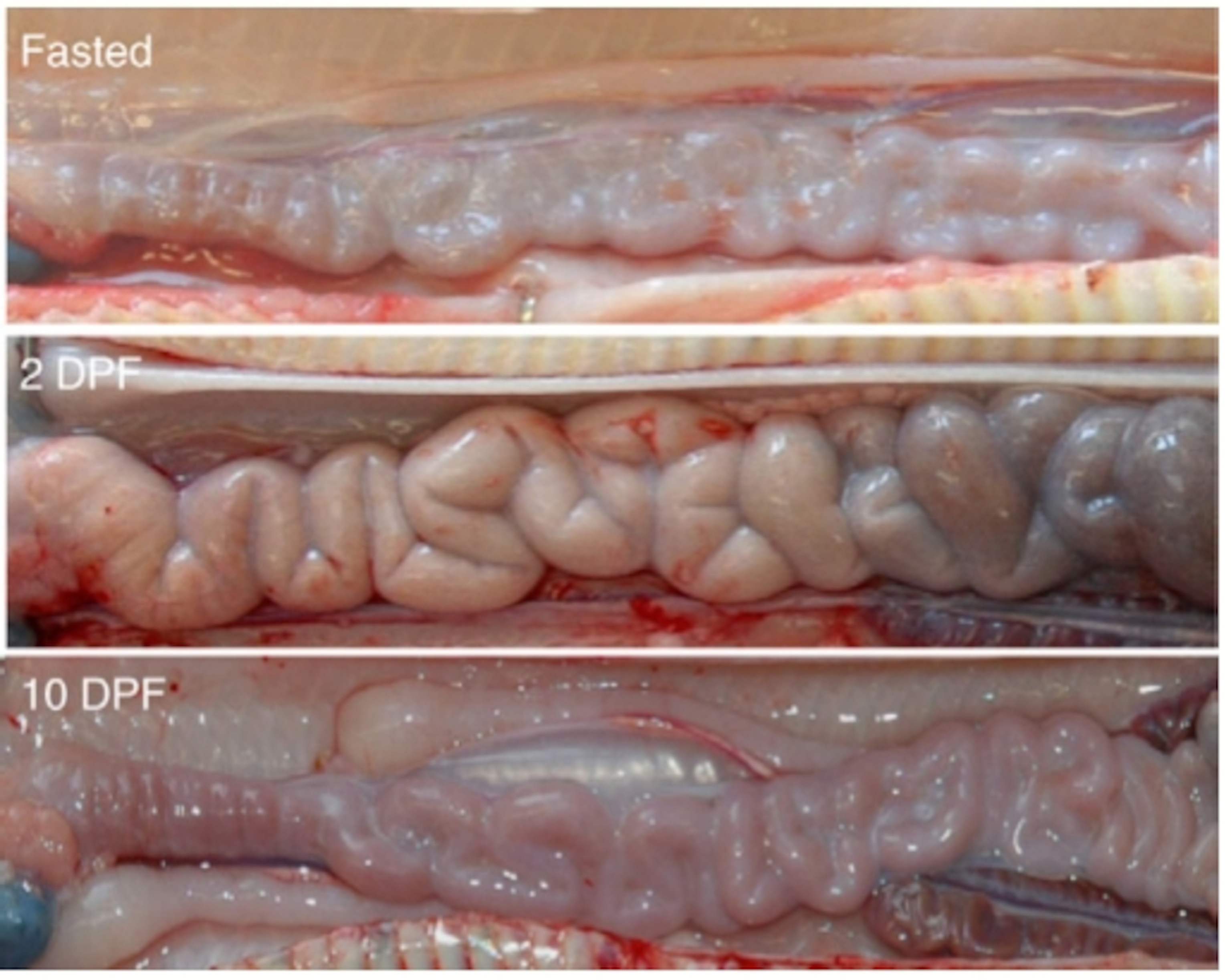
Expanding Guts in Pythons and People
Regular readers of this blog might remember a post I wrote a few months ago about weight-loss surgery. A mouse study suggested that surgery works — triggering weight loss and, often, diabetes remission — not because it makes the stomach smaller, but because it drastically changes its biochemistry.
I took a close look at that study and a slew of others in a feature published in today’s issue of Naturetoday’s issue of Nature. Rodent models have shown that after surgery, the gut goes through many dramatic changes. Bacterial compositions shift, for example, bile acids flow more freely, and the intestines swell.
That last bit maybe isn’t so surprising — after all, once the stomach shrinks to the size of an egg, suddenly a whole lot more undigested food is going to hit the intestines than before. But what is surprising, as Nicholas Stylopoulos’s group published last year in Science, is that this abrupt growth seems to trigger a host of permanent metabolic changes in the gut.
As I explain in the feature:
“The rapid growth requires a lot of energy, which comes from glucose. Glucose uptake by the changing organ increases, and the change is maintained over time, Stylopoulos says. ‘Essentially, the intestine becomes a bigger and a more hungry organ that needs more glucose than before.’
Stylopoulos believes that this tissue growth in the gut is the main driver of the surgery’s remarkable metabolic benefits — not a reduction in calorie intake.”
A couple of weeks ago, while I was doing the final fact-checks for the feature, Stylopoulos told me a fun tidbit about how the same sort of change has been reported in….wait for it….Burmese Pythons. “They have some amazing similarities,” he said.
Unlike most mammals, which eat small meals several times a day, pythons engulf enormous meals — ranging from .25 to 1.6 times their own body mass — many months apart. As biologists Stephen Secor and Jared Diamond pointed out in a 1998 Nature paper1998 Nature paper1998 Nature paper, that would be equivalent to a 136-pound person swallowing a 220-pound meal “in one gulp.”
After it has finished its meal, a python curls up for 5 to 11 days to digest it. “They have this amazing capacity to increase the length and the overall mass of their intestines within hours,” Stylopoulos told me. Once digestion is complete, their gut goes back to normal.

So the python gut expands rapidly after eating, just as Stylopoulos showed happens in the rat gut after bypass surgery. But “what is really amazing,” Stylopoulos said, is that the python gut also sees a surge in glucose metabolism after being fed.
Here’s an image from one of Sekor’s later studies, showing glucose levels (red and yellow) in a hungry animal (top) versus a just-fed one (bottom):

The difference between the python model and the bariatric surgery model is that for pythons, the gut goes back to normal once the food is gone. With surgically treated rats, in contrast, the gut expansion doesn’t seem to go away, presumably because the undigested food keeps on coming.
That said, Stylopoulos’s study found that the post-surgery gut doesn’t grow forever. Over time, it reaches a plateau and so does its glucose metabolism. That could be why some people who see initial metabolic benefits after bariatric surgery ultimately regress back into diabetes.
But as I mentioned, the gut expansion is just one of many things that happen after bariatric surgery. To learn about the others, head over to Nature.
